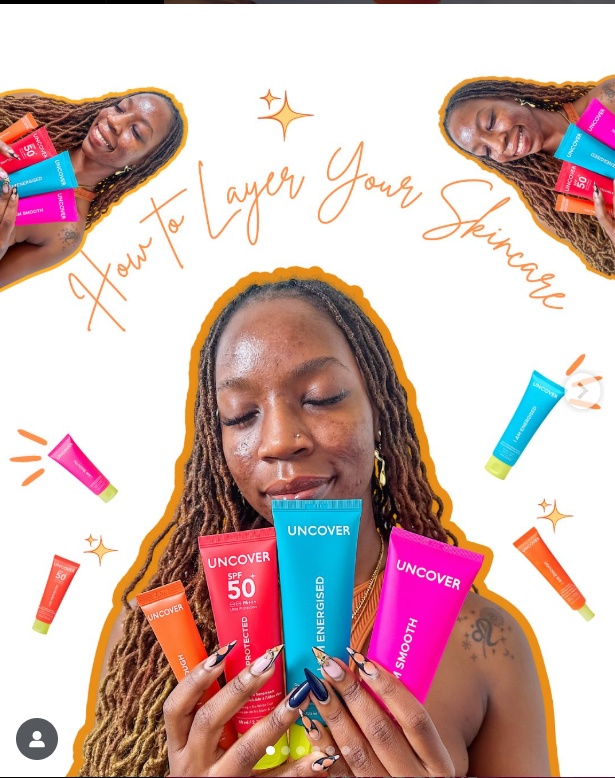Social Media Trends in Africa 2025: Hair and Skin Care Industries
Discover the hottest social media trends in Africa’s hair and skin care industry for 2025. From MUAs reshaping TikTok beauty culture to celebrity-led brands driving high-impact Instagram conversations and the rise of phygital experiences redefining customer engagement, this analysis offers data-backed insights and actionable strategies to help your brand stand out in a fast-moving market.
We are used to K-beauty, J-beauty, and mainstream Western beauty trends. But we were not ready for A-beauty and its innovative approach!
African skin and hair care brands have become bold with strategies, deep storytelling, and unapologetically African perspectives.
If you’re a marketing professional working in the hair or skincare industry, or supporting clients in this sector, this is the moment to pay attention.
In this analysis, I highlight three major trends shaping social media for African hair and skin care brands, with concrete examples and strategic takeaways.
Here’s what you’ll learn:
How storytelling and heritage-driven content build belonging.
Why “foodification” is making beauty more desirable.
How care routines and product how-to videos are winning Gen Z audiences.
1. Heritage content and storytelling
The strongest brands in body and hair care are leaning into narratives that connect products to identity, culture, and heritage. They’re showing (not just telling) how their work is rooted in authenticity.
54 Thrones – The African-American brand has embraced a YouTube strategy rich with storytelling: long-form promotional videos, “letters to Africa” that communicate vision and values, interviews with founder Christina Funke Tegbe, tutorials on how to use their skincare, and even documentaries that showcase product processes to build trust. On Instagram, 54 Thrones delivers scroll-stopping feeds full of dynamic colors and indigenous African tribes, explaining ancient beauty rituals like henna and the art of shea butter.
S’able Labs – This UK-based and melanin-inclusive brand was developed by Sabrina and Idris Elba to combat common skin challenges faced by darker skin tones. Their branding is ingredient-focused, community-driven, and minimally aesthetic. On Instagram, they highlight product shots paired with ingredient stories, while on Facebook, communications expand into wellbeing narratives, underlining the benefits and rarity of African botanicals..
The Natural Africa– The South African brand champions traditional and local botanicals in their products and uses Instagram and Facebook carousels to educate audiences on ingredient particularities and their unique value.
🔍 Why this works:
It builds a sense of belonging. By anchoring beauty products in African identity and heritage, these brands don’t just sell cosmetics, they sell pride, culture, and connection. This storytelling angle strengthens loyalty while setting them apart from generic, globalized skincare.
2. The foodification of products
The second big trend is turning products into edible goodies. From packaging to visuals, brands are making products feel like food experiences: delicious, scented, and eye-catching.
Bread – The African-Australian company showcases a bold rebranding that transforms hair products into sweet vanilla milk. Their Instagram page is animated by girls having creamy cereal for breakfast, while hair products are poured like syrup over fluffy pancakes. This new aesthetic feels fun and trendy to the core.
Hanahana Beauty and Topicals – The two giants of the Black-owned beauty industry in the U.S. have jumped on the foodie trend. Balms, lotions, and glosses are linked to enchanting fragrances and fruit-inspired experiences. Think fruit shots, playful “biting” visuals, and drinks paired with skincare.
Les Secrets de Loly – The French hair brand imagined by entrepreneur Kelly Massol for curly-haired girls brings all her fresh products to the table. “Loly’s Secrets” pioneers the link between tropical foods and haircare formulas, showcasing the benefits of bananas and fruits for textured hair.
🔍 Why this works:
It’s multisensory marketing: customers don’t just see a product — they experience tasting, smelling, and feeling it. Research shows that this kind of immersive engagement builds loyalty and influences purchase decisions. In an oversaturated market, foodification is a brilliant way to stand out and speak directly to younger, experience-driven audiences.
3. GRWM and care routines
When it comes to hair and skin, social media has become a stage for daily rituals, routines, and real-life moments.
Liha Beauty - The African-British brand leverages Instagram and TikTok for how-tos, get-ready-with-me videos, and skincare rituals that feel intimate and authentic.
Uncover Skincare – Bridging the gap between Kenya and Nigeria, this colorful brand uses carousel posts strategically on Instagram, with deep dives into key ingredients, morning routines, and skincare tips that blend education with relatability.
Beauty Hut Africa - The Nigerian skincare and beauty hub brings together some of the best brands on the market and builds strong reach on social media through influencer and creator collaborations, positioning itself within trusted networks.
🔍 Why this works:
It fosters community and high engagement. These formats feel like a two-way exchange rather than brand monologues. By letting audiences into routines and rituals, brands transform followers into participants — building deeper loyalty.
Wrapping It Up
Three trends are currently shaping African beauty’s digital presence:
Storytelling and heritage-driven content for cultural pride and belonging
Foodification of products for multisensory desire and distinction
Routine-centered, intimate content to build community and engagement
For marketing experts, the takeaway is simple: the African and Black skin and hair care industry isn’t borrowing from what Western brands are doing — it’s rewriting the rules.
To succeed in this market, you need strategies grounded in local insights and global creativity.
I help communication teams and agencies craft strategies that resonate with African audiences and deliver impact.
Book a call with me today if you want to position your beauty brand at the forefront of this movement.











